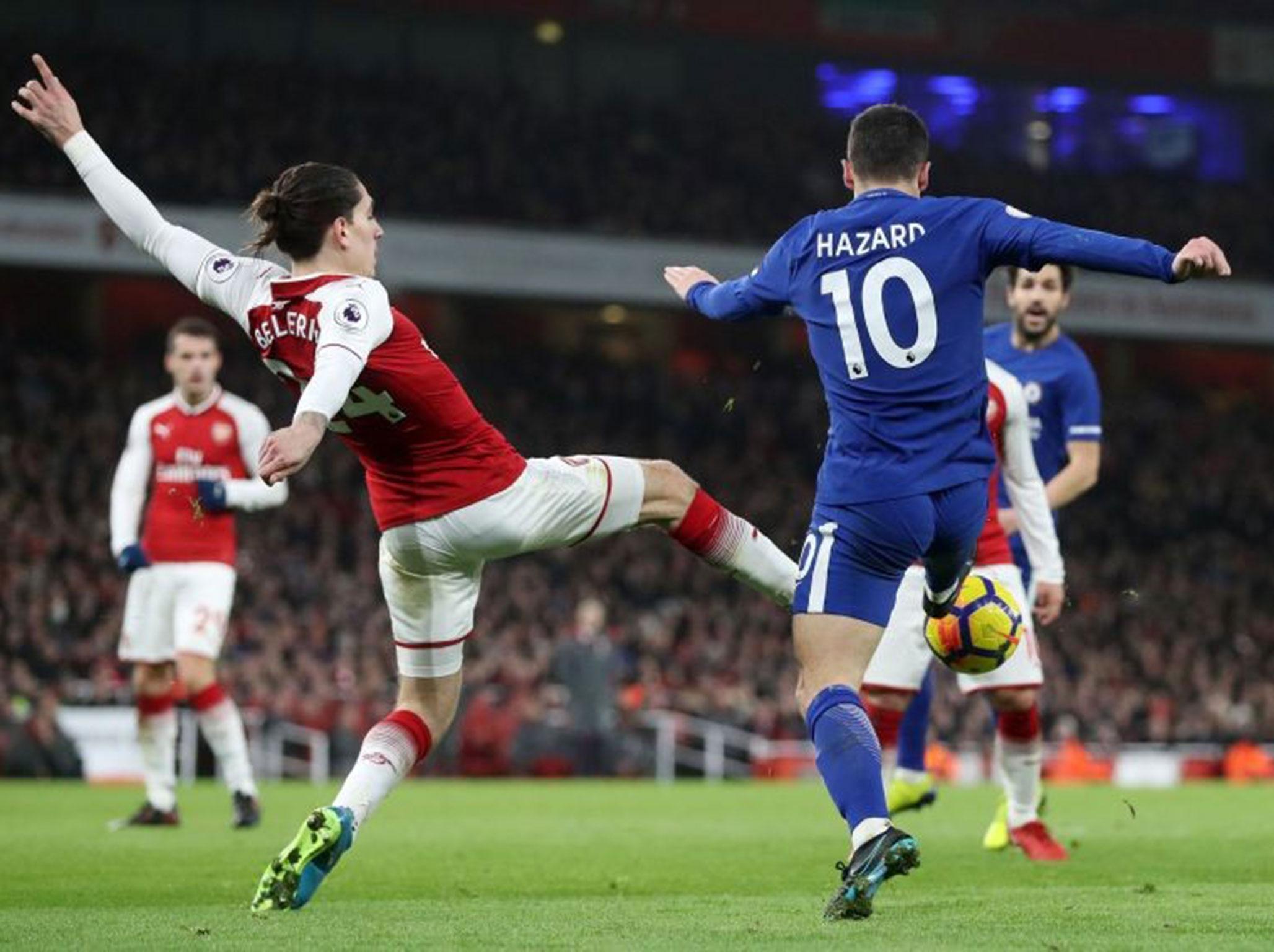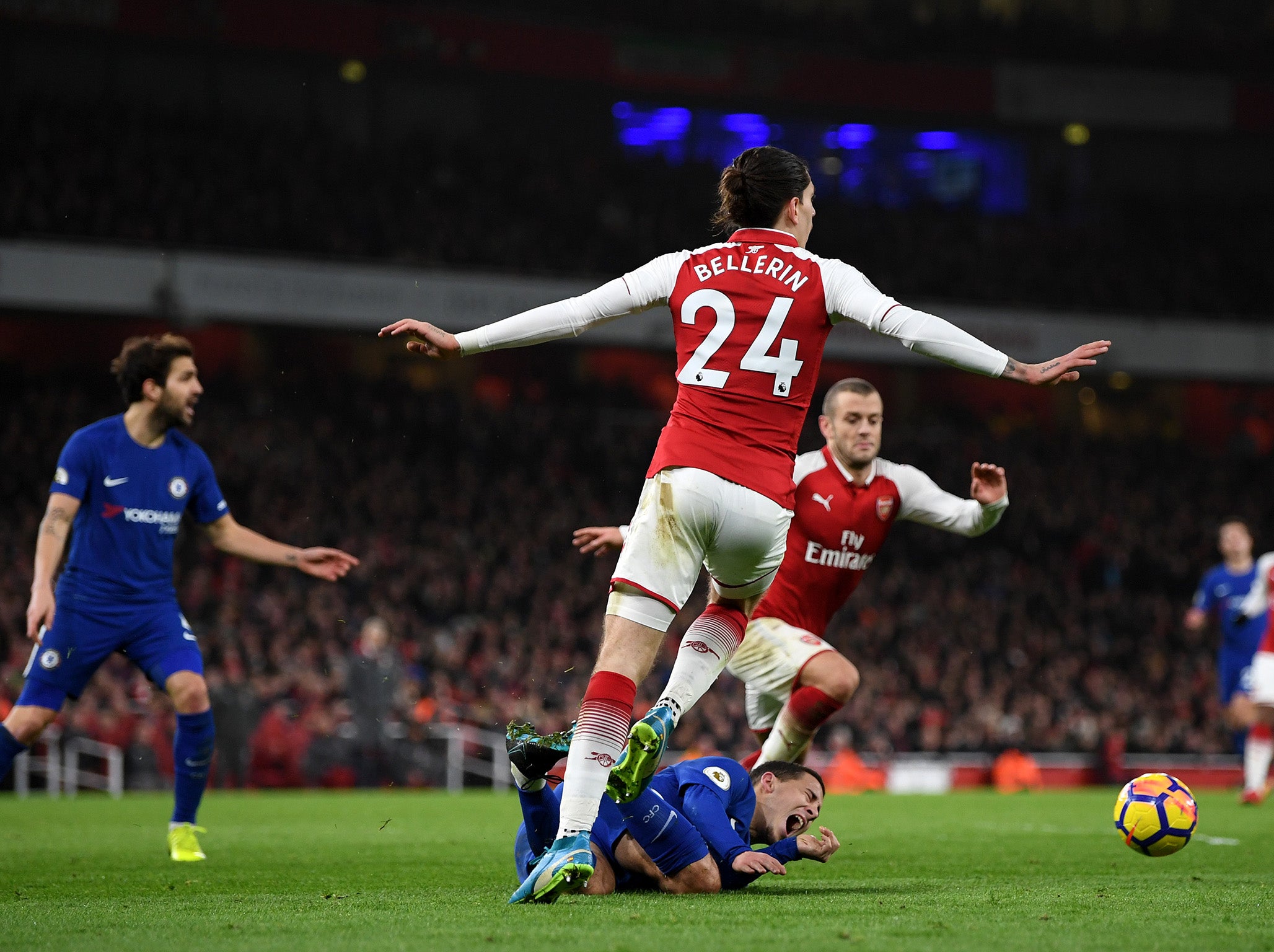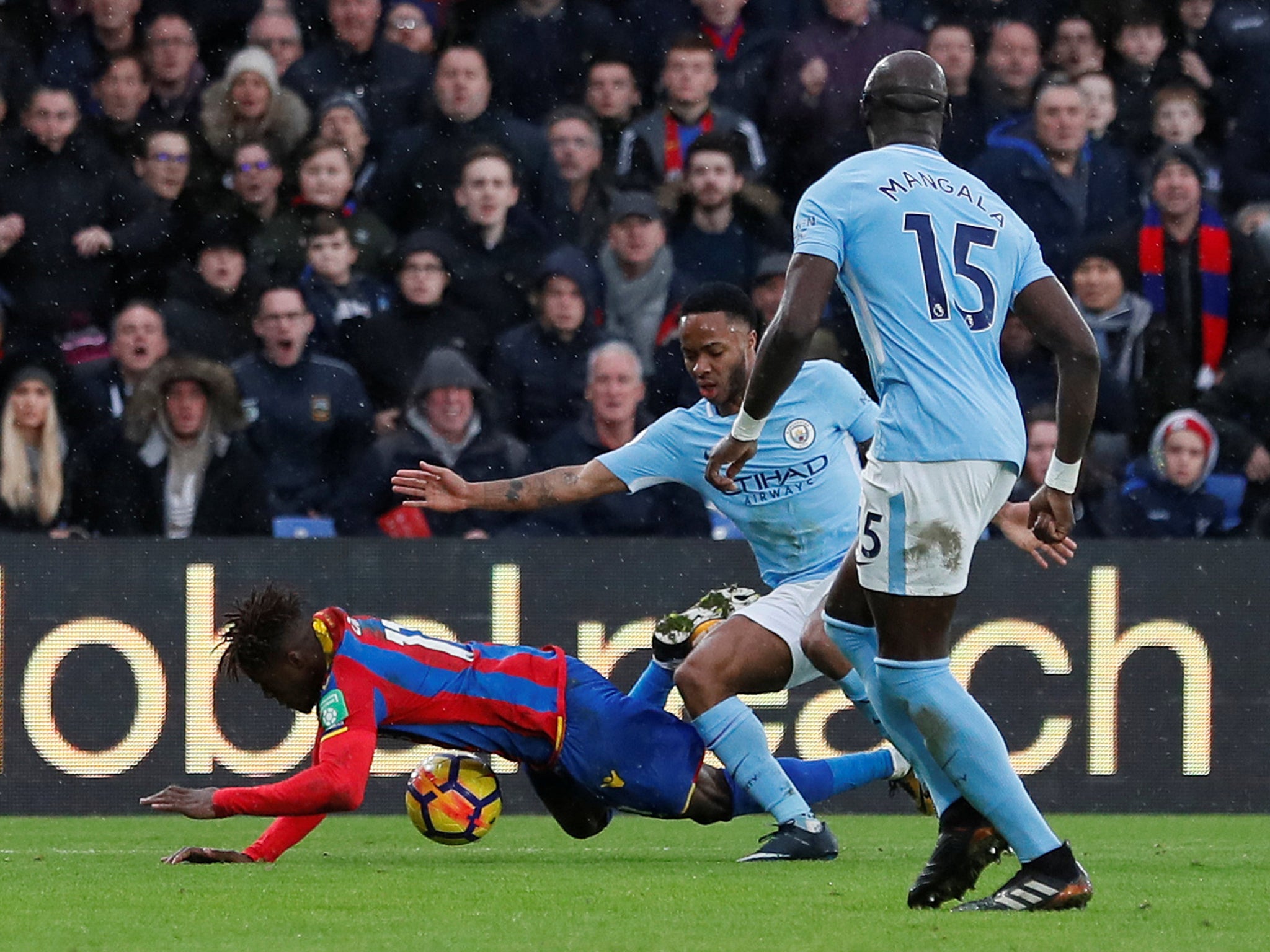The real question we should be asking about refereeing controversies
The post-match talk of late seems to always be about something negative and particularly, it would seem, refereeing decisions people don't agree with

If you feel as if there have been more refereeing controversies recently then you would be right.
This interminable run of fixtures that we have endured over the festive period has faced criticism because of fatigue, player fitness and the resultant low-quality football.
But the real problem with so many games played out by tired fringe players is that, instead of brilliant moments to pick over, the post-match talk seems to always be about something negative and particularly, it would seem, refereeing decisions people don't agree with.
Post-match discussion of Arsenal’s game with Chelsea – an engrossing encounter with a wild finish – is instead being dominated by managers chuntering about officials while television pundits pore over refereeing decisions, and while the coaches will always be happy to deflect from their deficiencies, the reason that broadcasting goes this direction is simply because of the way we consume football now.
Technology and attention to detail is such that no borderline refereeing decision is ever allowed to pass without extensive critique. HD Television cameras capture every angle, so why not use every last one of them?
But, as ever, the question we must ask ourselves when these controversies break out is not whether we agree, necessarily, but can we see why that decision was given?
Arsene Wenger labelled the penalty conceded by Hector Bellerín on Wednesday night 'farcical' and refused to blame his defender.
Yet Bellerín attempted a tackle, missed the ball and kicked Eden Hazard in the bottom of the foot. You might not think it was a penalty necessarily - you may feel the contact wasn't enough for the Belgian to fling his lower leg backwards like that - but can you understand why a referee would have whistled for one? In real time, from a random angle, with obstructions, while running?
Yeah, of course you can.

This issue with slo-mo obsession will likely become painfully clear in the autumn when VAR technology is used in the Premier League for the first time, or even earlier with a debut next Monday in the FA Cup clash between Crystal Palace and Brighton.
We are already seeing it in the NFL - in a sport far better-suited and more used to using tech - where there is currently an almost philosophical question being asked about how, when and why they are using video replays, as more and more decisions are overturned that have left viewers and pundits alike baffled.

Is this technology being implemented to ensure the egregious errors never occur and to only correct those on a sparing basis? Or is the plan to make the game as flawless as possible in as many decisions as possible, up to the point that each game now lasts twice as long and loses all flow?
The imaginary line that gets drawn between 'right decision' and 'wrong decision' in every refereeing controversy is as thin as a hair - but the drop on either side is a cliff face.
Take a step back from each of these recent incidents, whichever side you come down on, and first ask if you can see why the referee would have made the decision he did.
Did Bellerín clumsily punt Hazard's sole – even if you don’t think he should have gone down? Did Raheem Sterling throw an arm into the path of Wilfried Zaha's unhindered run – even if the contact didn’t seem severe?
Should you be mystified by a decision to the point that it suggests corruption, negligence or extreme incompetence than that is certainly something that should be highlighted.
But so often that's not the situation. It's a case of two sides standing a hair's breadth apart and screaming at the skies when they need only realise these things are marginal decisions and the game is best served by simply moving on.
Join our commenting forum
Join thought-provoking conversations, follow other Independent readers and see their replies
Comments
Bookmark popover
Removed from bookmarks